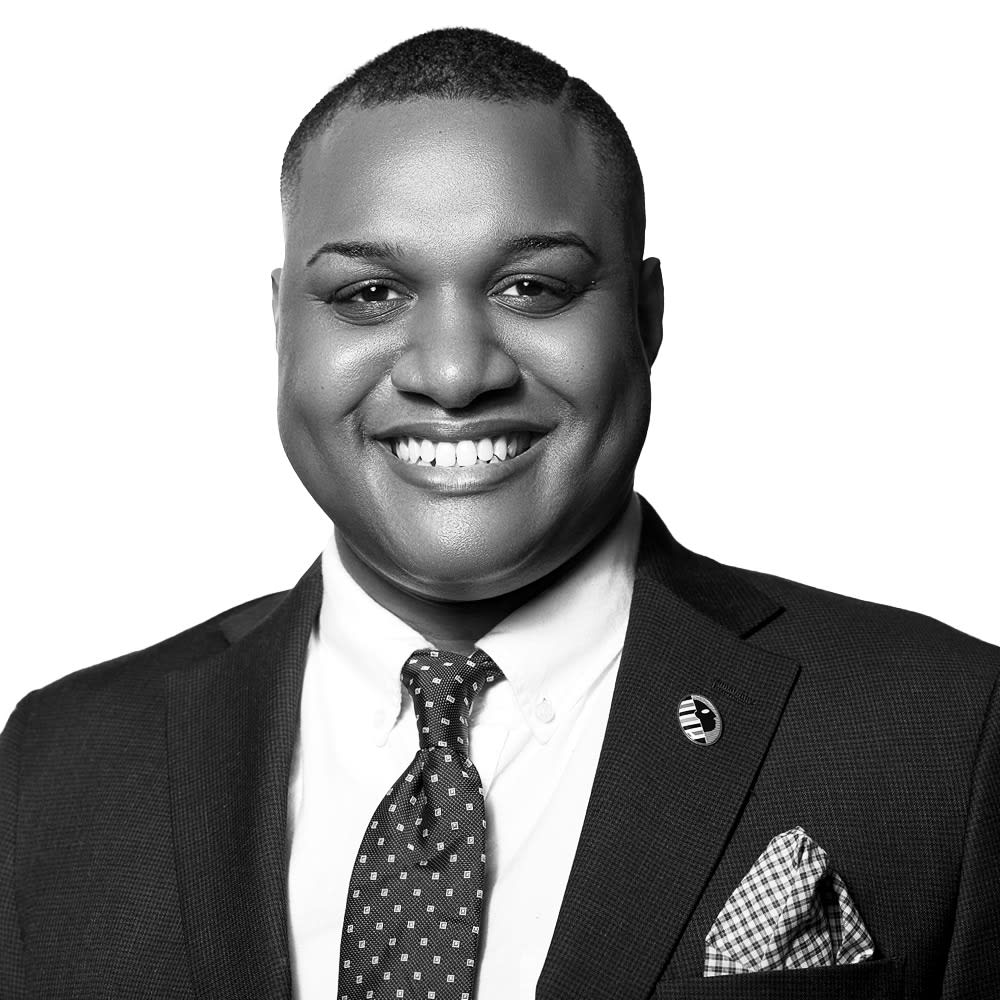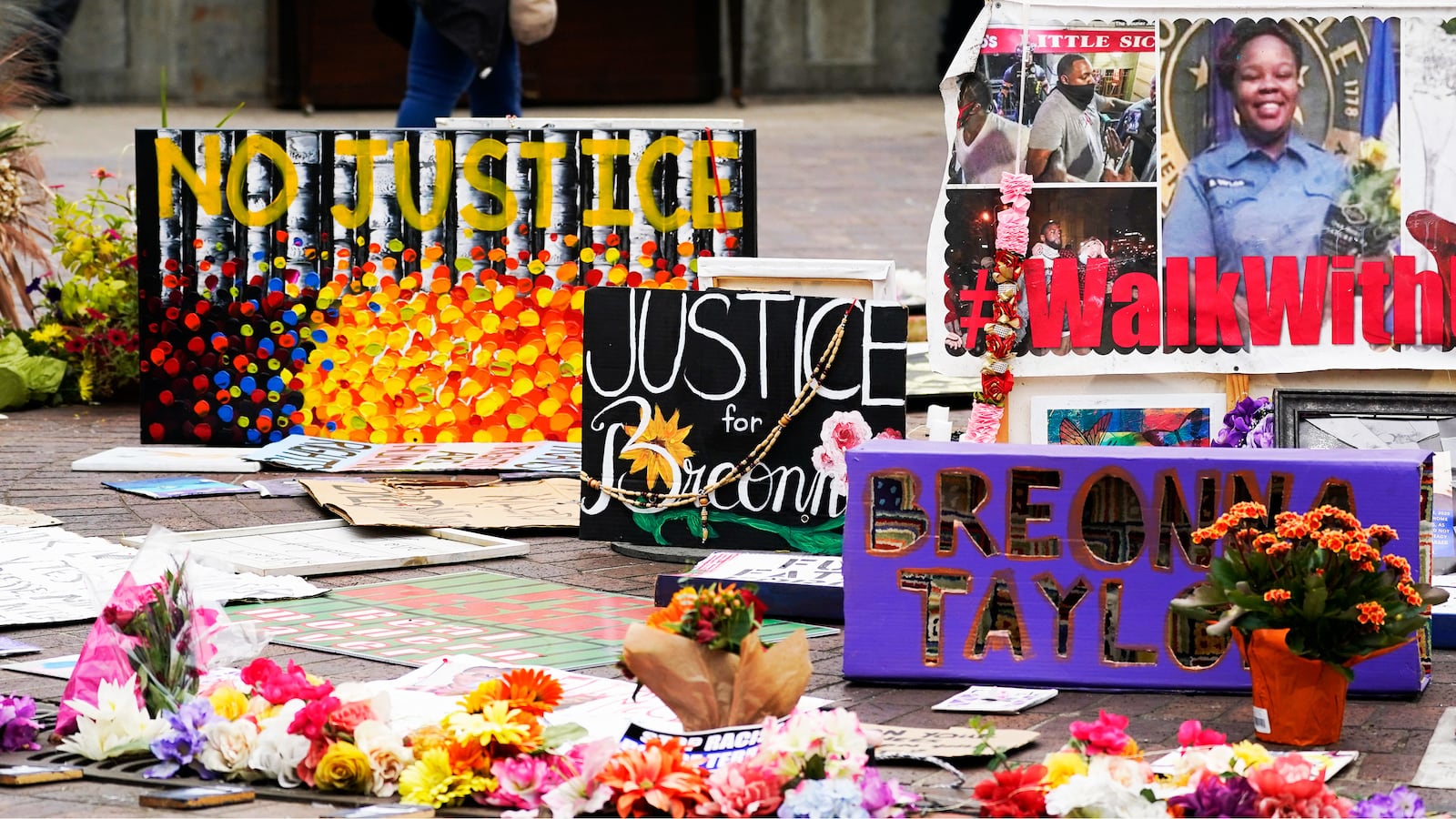In the pursuit of justice for Breonna Taylor, the 26-year old Black medical worker who was shot and killed by Louisville police officers in March during a failed raid on her apartment, the writing was on the wall from the very beginning. The political divide was set in motion, and so were the questionable decisions of those responsible for giving the public answers. Even so, many of us just wanted to believe that this time could be different. Until it wasn’t.
On Wednesday, a grand jury indicted a former Louisville police officer, Brett Hankison—for wanton endangerment for his conduct during the raid. No charges were announced against the other two officers who shot Taylor multiple times, and none of the three men was charged for causing her death.
On Monday, the Louisville Metro Police Department issued an emergency declaration delaying time off and vacation for officers, while Mayor Greg Fischer has also ordered a 72-hour curfew beginning at 9 p.m. Wednesday through 6:30 a.m. Thursday. It appears that even the city government knows what is likely to happen as a result of this breach of public trust. At this point, it’s hard to blame Black protesters who feel helpless, and permanently cynical about a system that continues to give them their ass to kiss.
A look back at how we got to this point serves as another reminder of how flawed our current criminal justice system continues to be—and perhaps why reform might no longer be the answer.
“Criminal law is not meant to respond to every sorrow and grief, and that is true here,” Kentucky Attorney General Daniel Cameron said at a press conference on Wednesday.
“I certainly understand the pain that has been brought about by the tragic loss of Miss Taylor. I understand that as an attorney general… I understand that as a Black man how painful this is.”
Cameron, the first Republican to be elected as Kentucky’s AG since 1944 and the first Black person in the position, has come under massive scrutiny for his visibly partisan role throughout Taylor’s investigation. While his office has been criticized for a lack of transparency and delayed updates on Taylor’s case, Cameron, who was first elected in November 2019, has appeared to be too preoccupied with embracing the national political spotlight. Earlier this month, President Donald Trump listed him as a possible Supreme Court pick, alongside right-wing powerhouses like Senators Tom Cotton and Ted Cruz.
During the Republican National Convention, Cameron made headlines after barely mentioning Breonna Taylor during his remarks. Instead, he spent a great deal of his time attacking the left’s appeal to Black voters and making it a point to describe Democratic presidential candidate Joe Biden as a puppet of the “radical left.” Such behavior has made the rising Republican leader appear over-ambitious and tone-deaf during a time where his state needed him the most.
It’s hard to ignore the political implications of this underwhelming response from our legal system. The message is loud and clear: Cops can literally take any Black life and can expect no prosecution under the law. Partisan politics have made the criminal justice system no longer blind, but a very colorstuck system that sees Black and white, red and blue. We currently live under a presidency that has made “backing the blue” synonymous with supporting law and order. But what happens when the blue isn’t actually following the law? Where’s the accountability?
The grand jury pretty much showed us yet again that blue lives are more important than Black lives, regardless of whether they are in the wrong. Which begs the question as to whether criminal justice reform measures are even worth advocating. We continue to hear from proponents of such efforts that reforming the system is the more peaceful and feasible way to bring about change. Policies and implementation strategies have been the name of the game.
Some said all we needed was a change to the “no knock” policy in Kentucky to prevent another tragic death such as Taylor’s. But the same case was made for Trayvon Martin, the Black teen who was killed by George Zimmerman in 2012. At that time, the big push was for body cameras on cops. Yet extrajudicial police killings of unarmed Black people continued, as in the case of George Floyd earlier this year.
Translation: Such reform measures mean nothing if the institutions in place continue to be racially, politically, and systemically biased when purporting to protect and serve the people.
Breonna Taylor, like so many Black people, deserved better. Her family gracefully advocated for her as the world began to wake up and say her name. And yet, in spite of such efforts, our criminal justice system failed her without any sign that it is capable of doing anything different. The fact that we can predict such an injustice before a jury even renders an indictment reveals a truth within itself.
How do you reform decades of this? It appears to be impossible.
Our only option is to seek to defund and abolish the current system, which continues to let us down at every turn.







